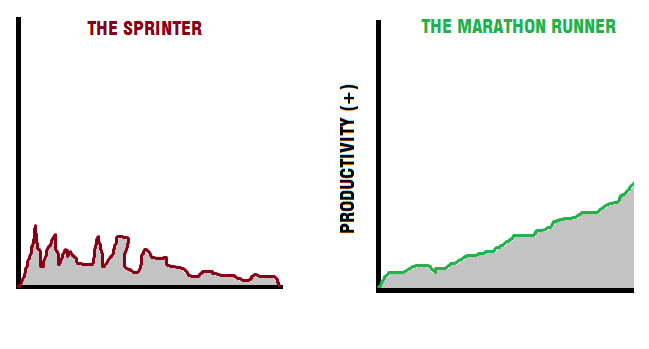How to Use a Recovery Week Or Down Week in Running?
Utilize a recovery week in running to allow for physical and mental rejuvenation. Lower intensity and volume for optimal results.
Incorporating a recovery week into your running routine is essential for preventing burnout and injury. By strategically reducing your training load, you give your body the chance to rest, recover, and adapt to the previous weeks of intense training. This can lead to improved performance, increased strength, and better overall running experience.
We will explore the purpose of a recovery week, how to plan and execute one effectively, and the benefits it can bring to your training regime. Whether you are a beginner runner or a seasoned athlete, understanding the importance of incorporating recovery weeks can significantly impact your long-term success and enjoyment in running.
What Is A Recovery Week?
Running is a demanding activity that requires both physical and mental endurance. To ensure long-term success in running, it’s essential to incorporate recovery weeks into your training routine. But what exactly is a recovery week?
Significance Of Recovery Weeks
A recovery week, also known as a down week, is a period of reduced intensity and volume in training. It allows your body to recuperate from the accumulated stress and fatigue caused by regular workouts. The significance of incorporating recovery weeks in your running schedule cannot be overstated. It provides the necessary physical and mental rest to prevent burnout and overtraining, ultimately contributing to improved performance and injury prevention.
Benefits Of Recovery Weeks
There are numerous benefits associated with integrating recovery weeks into your running regimen. First and foremost, it allows for muscle repair and adaptation, leading to improved strength and endurance. Furthermore, it promotes mental rejuvenation, enabling you to approach subsequent training phases with renewed motivation and focus. Additionally, recovery weeks help mitigate the risk of overuse injuries by giving your body the opportunity to heal and rebuild.

Credit: confessionsofamotherrunner.com
Planning A Recovery Week
Determining The Frequency Of Recovery Weeks
Consider how often you’ve been pushing your limits in training.
Setting Goals For A Recovery Week
Focus on rest, light workouts, and stretching as key objectives.
Activities During A Recovery Week
Incorporating a recovery week into your running routine is crucial for preventing burnout and reducing the risk of injury. During this time, it’s important to focus on activities that will help your body rest and reset for the upcoming training cycles.
Reducing Mileage And Intensity
- Lower your mileage: Decrease your running distance by 50-70% to allow muscles to recover.
- Reduce intensity: Avoid high-intensity workouts and replace them with gentle, easy runs.
Incorporating Cross-training And Active Recovery
- Swimming: Engage in low-impact activities like swimming to improve cardiovascular fitness.
- Cycling: Enjoy a bike ride to maintain endurance without the impact on joints.
- Yoga or Pilates: Enhance flexibility and core strength through these relaxing practices.
Nutrition And Hydration During A Recovery Week
Recovery weeks are crucial for runners to allow their bodies to rest and recuperate after intense training periods. During a recovery week, nutrition and hydration play a vital role in aiding the body’s recovery process. By focusing on restorative foods and optimal hydration strategies, runners can ensure they are properly refueling and rehydrating their bodies to maximize the benefits of their recovery week.
Focus On Restorative Foods
During a recovery week, it’s essential for runners to prioritize consuming restorative foods that aid in muscle repair and replenish depleted nutrients. Foods rich in anti-inflammatory properties such as dark leafy greens, berries, and fatty fish can help reduce inflammation and promote healing. Additionally, incorporating complex carbohydrates like sweet potatoes and quinoa can provide sustained energy while also supporting glycogen replenishment in muscles.
Optimal Hydration Strategies
Hydration is crucial during a recovery week to help the body flush out toxins and support the recovery process. Optimal hydration strategies include consuming an adequate amount of water based on individual sweat rates and adjusting intake to account for any changes in climate or training intensity. Along with water, replenishing electrolytes through natural sources like coconut water or electrolyte-rich sports drinks can help maintain proper fluid balance and support overall recovery.
Managing Mental And Emotional Well-being In A Recovery Week
After intense training sessions and pushing your limits, a recovery week or down week is essential for not just physical recuperation, but also managing your mental and emotional well-being. Taking care of your mental health is just as important as taking care of your physical health, and during a recovery week, you have the opportunity to give your mind the rest and rejuvenation it deserves. Here are a few strategies you can employ to manage your mental and emotional well-being effectively.
Mindfulness And Relaxation Techniques
During a recovery week, it’s crucial to engage in mindfulness and relaxation techniques to help calm your mind and reduce stress levels. Mindfulness involves being fully present in the moment, paying attention to your thoughts and feelings without judgment. This practice can be a powerful tool to manage stress and enhance overall well-being. Incorporate activities such as meditation, deep breathing exercises, or yoga into your routine to promote relaxation and mental clarity.
Setting Realistic Expectations
One common challenge during a recovery week is the temptation to set high expectations for yourself, which can lead to feelings of guilt or frustration if not met. To avoid this, it’s important to set realistic expectations for your recovery week. Understand that this period is meant for rest and recovery, and pushing yourself too hard defeats the purpose. Embrace the opportunity to take a step back, knowing that it will ultimately benefit your long-term training goals. Celebrate small achievements and prioritize self-care during this time.
Here’s a helpful table showing the dos and don’ts for managing mental and emotional well-being in a recovery week:
| Do | Don’t |
|---|---|
| Practice mindfulness and relaxation techniques like meditation and deep breathing exercises. | Overwhelm yourself with unnecessary mental stress or pressure. |
| Set realistic expectations, understanding that rest is equally important as training. | Compare yourself to others or dwell on what you could have done differently. |
| Engage in activities that bring you joy and help you unwind. | Fill your schedule with unnecessary tasks or commitments. |
| Reflect on your training journey and assess areas for improvement without self-judgment. | Ruminate on setbacks or negative experiences. |
Remember, a recovery week is a valuable opportunity to recharge physically, mentally, and emotionally. By incorporating mindfulness and relaxation techniques, and setting realistic expectations, you can make the most out of your down week and come back stronger for your future training sessions.

Credit: confessionsofamotherrunner.com

Credit: kookyrunner.com
Frequently Asked Questions On How To Use A Recovery Week Or Down Week In Running
How Often Should I Include A Recovery Week In My Running Training?
Including a recovery week in your running training every 3 to 5 weeks will provide your body the necessary rest to prevent injuries and optimize performance.
What Are The Benefits Of Incorporating A Recovery Week Into My Running Routine?
Integrating a recovery week allows your muscles to repair and rebuild, enhances your overall fitness, reduces fatigue, and helps prevent overtraining.
How Should I Structure My Workouts During A Recovery Week In Running?
During a recovery week, reduce mileage, intensity, and duration of your runs. Focus on active recovery activities like yoga, stretching, cross-training, and light, easy-paced runs.
Conclusion
Incorporating recovery weeks into your running routine is crucial for preventing burnout and injury. By allowing your body to rest and recover, you can achieve better long-term results and consistent progress. Don’t underestimate the power of a down week in enhancing your overall performance and well-being as a runner.




